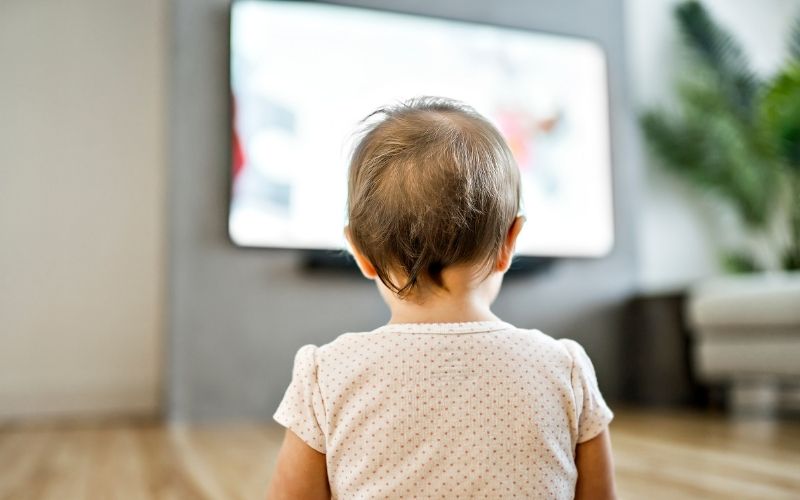I recently read that exposure to background media can negatively affect a child’s development. Is this true for music as well? I play music and talk radio in the background throughout the day with our toddler. I thought it would be good for her. Is it potentially not so good?
– Background Beethoven
Dear Beethoven,
The concern about background visual media such as televisions is that they distract children from brain-building imaginative play and negatively affect their ability to build up their attention span. The visually stimulating lights and images draw the child’s attention away in different ways from background music or radio. That said, there are still some considerations to keep in mind:
Pay attention to what your child is paying attention to.
Young children’s attention spans are roughly 2-3 minutes per year of age – so 2-year-olds have a 4-6 minute attention span, 3-year-olds 6-9 minutes, 4-year-olds 8-12 minutes. Even older children and adults can have a difficult time focusing on tasks when music with words they know is playing in the background.
For young children with less-developed executive function, coloring, building with blocks, or imaginative play requires all of their attention — and, if there is music playing in the background, all of their attention may get dragged to that instead. However, when it’s the primary activity, such as dancing, beating the time, or singing along, music can boost brain development.
Select content that you can enjoy together.
You don’t need to listen only to children’s music, but toddlers will pick up the emotional tone of some radio programs. Though they may not understand the words, your toddler is likely to note the strain associated with distressing topics. Select music that is upbeat or stories that are more pleasant in tone. Take opportunities to sing along or dance with your child.
Leave space for ‘media-free down time’.
Throughout the day, turn off all media, including those in the background. This will help keep your child from becoming overstimulated, help them learn to self-soothe, and will give you both time to interact without any media distractions. Time outdoors without media will calm and focus your child, allowing her to fine-tune all of her senses and observe. No media can compete with the natural world for building a calm and focused mind.







